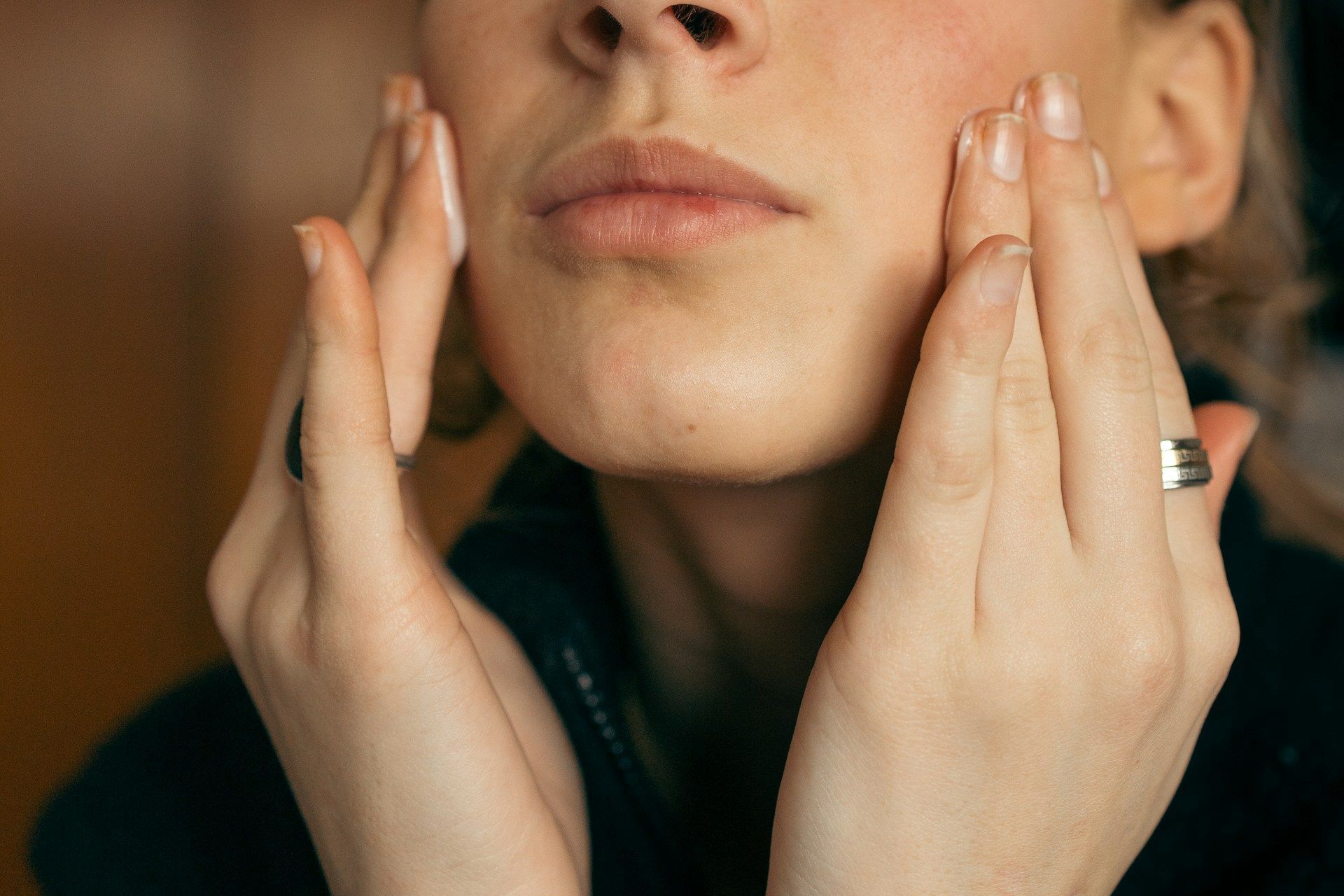Exercises to Help with TMJ by Dr. Cameron Kuehne

TMJ disorders can really put a damper on daily activities. If you've ever felt pain while chewing or noticed your jaw making strange noises, you’re definitely not alone. Many people face these issues, and they can be both frustrating and painful.
Your temporomandibular joint (TMJ) is crucial for tasks like talking and eating, so keeping it healthy is important. Fortunately, there are straightforward exercises and techniques that can help ease discomfort.
Dr. Cameron Kuehne from The Center for Sleep Apnea and TMJ knows how to tackle TMJ problems effectively. He focuses on simple and practical solutions you can do at home. With a few easy exercises, you can start relieving tension and pain in your jaw.
These methods don’t just aim at temporary relief—they are part of a comprehensive approach to improving your overall comfort. Whether you're experiencing mild discomfort or more noticeable symptoms, there are steps you can take to feel better.
Understanding TMJ and Its Impact on Living Comfortably
The temporomandibular joint (TMJ) is a crucial part of your jaw that helps you talk, chew, and yawn. It's the hinge that connects your jaw to your skull, allowing smooth and controlled movement. When the TMJ functions correctly, you probably don't even notice it. However, when problems arise, they can significantly impact daily activities, making them uncomfortable or even painful.
Common symptoms of TMJ disorders include persistent pain in your jaw, face, or around your ear. You might hear clicking or popping sounds when you open or close your mouth. Some experience limited jaw movement, making it difficult to chew or speak. Such issues can stem from various reasons, including injury, arthritis, or even habitual teeth grinding.
Dr. Cameron Kuehne at The Center for Sleep Apnea and TMJ understands the complexities of this condition. He specializes in diagnosing and managing TMJ disorders, focusing on personalized treatment plans to alleviate pain and restore function. By consulting with Dr. Kuehne, those experiencing TMJ-related discomfort can find substantial relief through targeted strategies and support.
Simple Jaw Exercises Recommended by Dr. Cameron Kuehne
For TMJ relief, simple jaw exercises can make a big difference. Dr. Cameron Kuehne suggests several exercises that can help ease tension and improve mobility. These exercises are easy to do at home and require no special equipment. When practiced consistently, they can significantly reduce symptoms.
- Jaw Relaxation: Place your tongue on the roof of your mouth behind your upper front teeth. Allow your teeth to come apart while relaxing your jaw muscles.
- Jaw Stretching: Open your mouth as wide as you comfortably can and return to the closed position. Repeat this motion slowly, about 5-10 times, without forcing your jaw.
- Side-to-Side Jaw Movement: Gently slide your jaw to one side while keeping your mouth slightly open. Hold for a few seconds, then return to the center. Repeat on the other side.
- Chin Tucks: Keeping your shoulders relaxed, tuck your chin slightly toward your chest and hold for a few seconds. This helps strengthen neck and jaw muscles.
To get the most out of these exercises, Dr. Kuehne recommends doing them twice a day. It's crucial to maintain a relaxed posture and avoid movements that cause pain. With regular practice, these exercises can help you maintain comfort and flexibility in your jaw. If discomfort persists, seeking professional advice can ensure more tailored care.
Additional Techniques for Managing Discomfort
Besides exercises, other strategies can help manage TMJ discomfort effectively. Dr. Cameron Kuehne advises incorporating these methods into your daily routine for better relief.
Warm compresses can ease TMJ discomfort. Applying a warm towel to your jaw helps relax muscles and improve blood flow. It's ideal to do this for about 15-20 minutes, especially if your jaw feels tense.
Good posture is vital. Keeping your head aligned with your spine reduces strain on your jaw. While sitting or standing, ensure your shoulders are back and your chin is up. This posture reduces stress on your jaw joints.
Stress often worsens TMJ symptoms. Relaxation techniques, such as deep breathing or meditation, help manage stress. Taking time each day to relax can prevent your jaw muscles from tensing up.
The diet also plays a role. Avoid hard, crunchy, or chewy foods that can irritate your jaw. Instead, focus on soft, easy-to-chew foods. Avoiding gum and sticky candy helps too.
Combining these techniques with jaw exercises offers the best chance for reducing TMJ pain. Dr. Kuehne's approach emphasizes a combination of solutions for the best outcome.
Signs That Indicate the Need for Professional Evaluation
Knowing when to seek professional help is essential for TMJ issues. Some symptoms mean it's time to consult Dr. Cameron Kuehne at The Center for Sleep Apnea and TMJ.
Severe pain that doesn’t improve is a major warning sign. If pain interferes with eating or speaking, it’s best to get a professional opinion. Difficulty opening or closing your mouth, or your jaw locks in place is another indicator that expert advice is needed.
Frequent headaches or earaches may be related to TMJ disorders. If these become regular, they warrant a consultation. Other symptoms include persistent clicking or popping sounds in your jaw without improvement from home treatments.
Talking to Dr. Kuehne ensures a personalized treatment plan that targets your specific needs. The Center for Sleep Apnea and TMJ in Meridian offers innovative solutions for TMJ disorders. Knowing these signs helps you decide when to seek professional care.
Conclusion
Managing TMJ disorders involves understanding the condition and exploring a variety of treatment options. TMJ discomfort can disrupt daily life, but recognizing effective exercises and techniques can provide relief. Dr. Cameron Kuehne's insights and strategies offer several ways to manage symptoms, from gentle jaw exercises to stress management. It's important to listen to your body and explore solutions that alleviate your unique symptoms.
When these home remedies don't suffice, seeking professional guidance becomes essential. Dr. Kuehne offers expertise and personalized care methods designed to tackle TMJ issues effectively.
The Center for Sleep Apnea and TMJ in Meridian provides a safe space to explore comprehensive care options and find longer-lasting relief. With commitment to a combined strategy of exercises and lifestyle modifications, individuals can pave the way to a more comfortable daily routine.
For those seeking reliable
TMJ disorder treatment in Meridian, Dr. Cameron Kuehne and The Center For Sleep Apnea and TMJ are ready to assist. Schedule a consultation to discuss the most effective strategies for managing your TMJ concerns. Let us help restore your comfort and improve your quality of life with our experienced care.
Contact Us
The Center for Sleep Apnea & TMJ
1718 S Millennium Way, Meridian, ID 83642
Phone: (208) 376-3600
Fax: (208) 376-3616
All Rights Reserved
The Center for Sleep Apnea & TMJ
All Rights Reserved - Accessibility Statement
The Center for Sleep Apnea & TMJ










